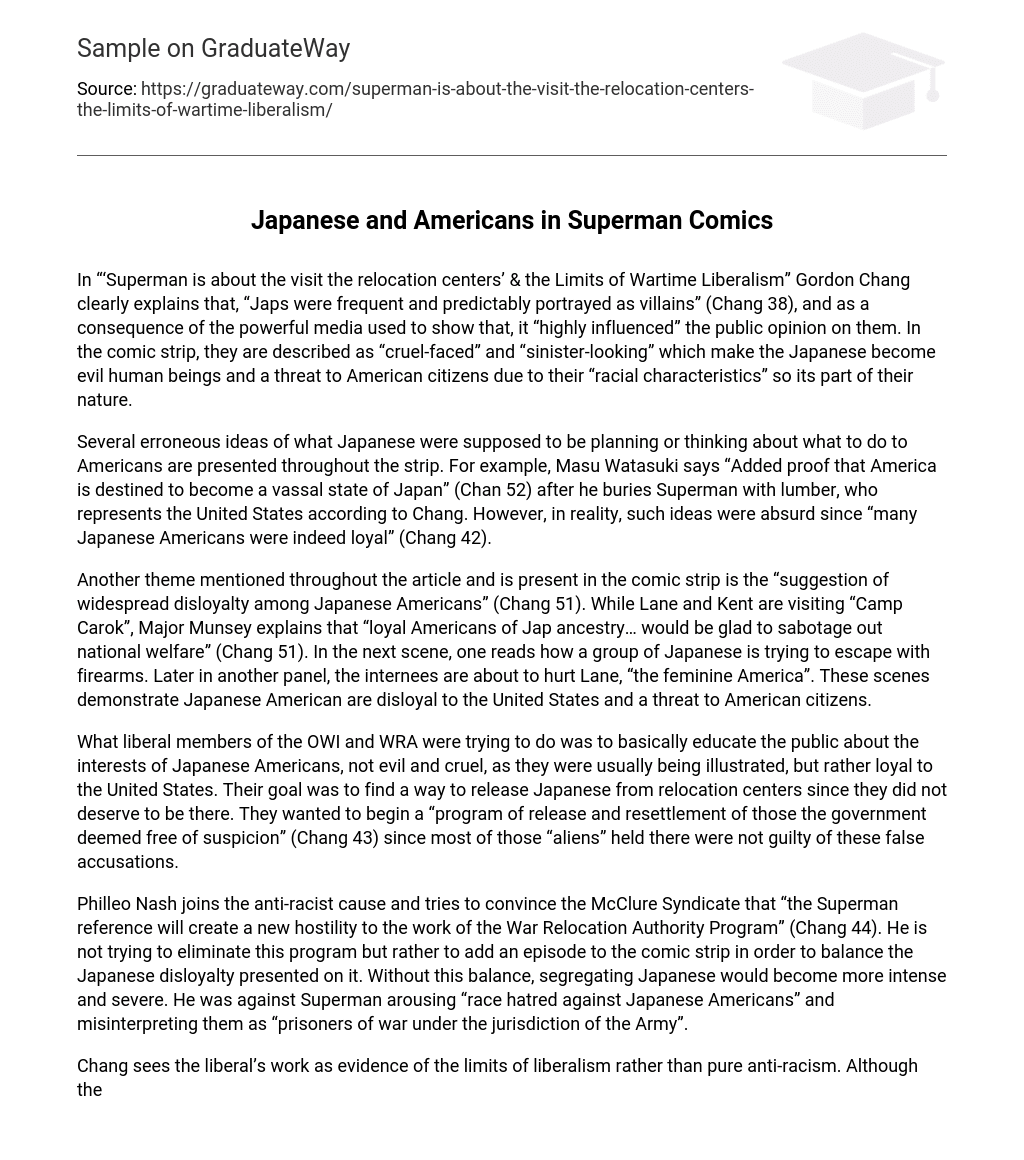In his article “‘Superman is about the visit the relocation centers’ & the Limits of Wartime Liberalism,” Gordon Chang explains how the portrayal of the Japanese as villains in the media greatly influenced public opinion. The Japanese were often depicted as “cruel-faced” and “sinister-looking,” reinforcing the idea of their inherent evil and threatening nature. This characterization was based on their racial characteristics, which further demonized them in the eyes of American citizens (Chang 38).
The strip presents multiple incorrect notions regarding the supposed plans and thoughts of Japanese people towards Americans. One instance is when Masu Watasuki claims that America is destined to become a vassal state of Japan after burying Superman with lumber, symbolizing the United States, as stated by Chang. However, these ideas were in fact absurd, as Chang mentions that many Japanese Americans were actually loyal.
The article highlights a recurring theme found in the comic strip, which suggests that there is widespread disloyalty among Japanese Americans (Chang 51). In one instance, while visiting “Camp Carok,” Major Munsey asserts that “loyal Americans of Jap ancestry… would be glad to sabotage our national welfare” (Chang 51). This notion is further depicted in a scene where a group of Japanese individuals attempt to escape with firearms. Furthermore, in another panel, the internees are shown ready to harm Lane, symbolizing “the feminine America.” These scenes effectively portray Japanese Americans as being disloyal to the United States and posing a threat to American citizens.
Members of the OWI and WRA with liberal views aimed to educate the public about the true nature of Japanese Americans, highlighting their loyalty to the United States rather than portraying them as evil or cruel. Their main goal was to secure the release of innocent Japanese individuals from relocation centers, as they believed they should not be detained there. They proposed a “program of release and resettlement” for those who were wrongly accused by the government, advocating for their freedom.
Philleo Nash, in an effort to support the anti-racist cause, implores the McClure Syndicate to recognize that the inclusion of a Superman reference will fuel negative feelings towards the War Relocation Authority Program. Nash’s intention is not to eliminate the program, but rather to incorporate an episode into the comic strip that will counterbalance the depiction of Japanese disloyalty. Without this counterbalance, the segregation of Japanese individuals would become more severe and intense. Nash strongly opposes Superman promoting “race hatred against Japanese Americans” and misconstruing them as “prisoners of war under the jurisdiction of the Army.”
Chang believes that the work of liberals serves as a reflection of the limitations of liberalism rather than being solely motivated by anti-racism. Despite their efforts to fight for better treatment, the liberals were ultimately unable to completely eradicate the injustices of the camps. This parallels Superman’s concluding message to his readers in the last frame of the storyline, which fails to fully counteract the negative portrayals. Similar to Superman’s final attempt, the liberals’ endeavors proved insufficient in altering public opinion in America.





